All of these are listed on prog sites as prog, so if it ain’t prog enough for you, prog off.
OK, this is a sequel to my first post on the topic. As with my last post, I mostly wrote these and posted them on a prog site like, years ago, so most of these weren’t released in the last few years, but that doesn’t mean you shouldn’t read about them!
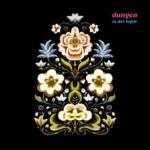 Dungen – Ta Det Lugnt (2004)
Dungen – Ta Det Lugnt (2004)

Dungen acquired a bizarre credibility at one point with North American hipster indie rockers who weren’t even aware that prog existed and turned their noses up at it if they were. Nonetheless, make no mistake, despite the douche cred, this album is a massive slab of proggy psych rock that will satisfy even the most jaded listener. It’s hard to come up with reference points for this music, mainman and resident genius Gustav Ejstes’ vision is so original. The production is deliberately vintage and hazy, as are the sounds. The songs range from the druggily pastoral and tranquil to raging feedback-driven freakouts worthy of the Airplane at their wiggiest. Ejstes was very fortunate to have the services of former Landberk/Paatos guitarist Reine Fiske, who is one of the great heroes of modern rock guitar. He coaxes unearthly sounds out of his pedals and amp and also knows how to construct an emotionally satisfying solo, skills which carry over into the band’s live sets, which I can attest to, having seen them live. Odd vintage keyboard sounds and even some creepy strings enter the mix as well. The all-Swedish vocals only add to the unearthly exoticism of the record. An album this strong from start to finish doesn’t really have any highlights — it’s all one great trip! When looking over the field of modern prog and psych, there is no doubt this is one of the masterpieces of the new millennium.
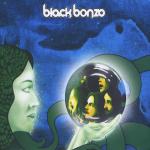 Black Bonzo – Lady of the Light (2004)
Black Bonzo – Lady of the Light (2004)

This record is bleeping incredible. Of all the “retro-rock” bands I’ve heard, i.e. Darkness, Datsuns, Hellacopters, The Soundtrack of Our Lives, and the proggy ones like Wobbler and Anglagard, this is easily the most authentic-sounding band, but one doesn’t get a feeling of listening to recycled riffs or ideas while enjoying this record. It’s almost like a time warp back to the era of glitzy capes and giant backdrops. The production is incredible, being a combination of crystal-clear modern sounds with the feel of seventies keyboards and drums (the snare sound is straight out of 1975). The comparisons are easy — this band is basically the new Uriah Heep, although traces of Queen, Deep Purple, Status Quo and even softer groups like BJH and the Moodies pop in and out, mainly in the very majestic mellotron sections. But Heep is no doubt the overriding influence. The opener, “Lady of the Light,” showcases the beat from “Easy Livin'” and is one of three rockers (“Freedom” and “Jailbait” being the other boogie fun tunes) buried amongst the ponderous, pompous mid-tempo prog pieces. Delicately plucked acoustic guitars, bluesy electric solos, classy, David Byron-esque lead vocals and extensive use of multi-part harmonies, and lots (and lots!) of organ solos are other distinguishing characteristics of this fine record. I don’t think any fan of seventies rock and roll can afford to be without this one.
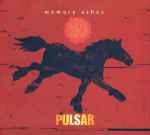 Pulsar – Memory Ashes (2007)
Pulsar – Memory Ashes (2007)

I was surprised in 2007, as were a lot of people, I imagine, to hear that Pulsar, a semi-obscure but much-talked-about space rock band from the late seventies, had reformed to record again, with the original musicians. I was very curious to hear what the twenty-first century version would sound like. This record ended up going a bit under the radar at the time, but I’m pleased to say that Pulsar’s modus operandi did not change a bit. The band specializes in languid, beautiful melody-making, the foundations of the sound being spacy guitar and layers of synths. The title suite is a four-part piece that doesn’t really change much throughout its length, although it does go briefly mid-tempo in part 3. Gilbert Gandil’s guitar playing is tasteful and emotional, and he has wisely decided to sing in French on this recording, although vocals are very sparsely used. The album is rounded out by two pieces, “Monks” and “Respire.” “Monks” features some samples of Gregorian chant and may stray too close to Enigma territory for some, but it is a pleasant listen. “Respire” is a quiet piece that gives Gandil yet another opportunity for some emotive soloing. This was a welcome return by this venerable band, a classy album that lovers of the symphonic modern Camel, Hawkwind, Floyd, and other space bands will enjoy, as well as fans of Pulsar’s old classics like Halloween and Strands of the Future.
SAMPLE
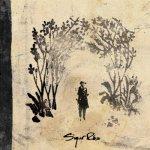 Sigur Rós – Takk (2005)
Sigur Rós – Takk (2005)

This isn’t even my favorite album by this renowned band; the magnificent Valtari leaves me a wreck each time I hear it. But I have some copy on this one, so: after the kings of Icelandic post-rock’s mildly disappointing (), which was mostly a bunch of long jams that bored me a bit (the first couple tracks were quite good, though), Sigur Rós refocussed and produced an album that at least matches the quality of Ágætis Byrjun, their breakthrough. The songs can be lengthy still, but they are tightly written and feature less of the stereotypical loud-beginning-to-chaotic-ending structures that plague a lot of post-rock bands. Fragments of the melodies stick in my head long after they are gone, something that couldn’t be said about (), with the exception of a couple of tracks. The vocals are still the group’s greatest strength — there’s nothing quite like them that I’ve heard, still sounding like a demented boys’ choir! But the heavy use of strings is back, and even some oom-pah-pah horns used to playful effect. The delay-drenched guitars are given lots of room to breathe; in fact, the use of space is wonderful. Ringing notes go on for bars on end, adding to the contemplative atmosphere. There is also a sense of happiness and contentment that was lacking in the band’s work before (the title means “thanks”), making this the perfect accompaniment to a sunny fall afternoon. There is still, to this day, no band quite as distinctive as Sigur Rós, who proved with this release that having a recognizable sound doesn’t mean there is no room for development and evolution.
SAMPLE
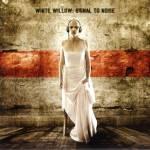 White Willow – Signal to Noise (2006)
White Willow – Signal to Noise (2006)

This is an album of typically grandiose Nordic gothy-prog (who doesn’t like that?). White Willow tweaked their previously overly pompous (too pompous for me) sound and membership a bit on each album and presented a new breathy female singer here. White Willow settled on a sound very similar to what Sweden’s Paatos was doing, more of a prog-influenced modern alternative sound, and of a similar high quality. The mostly mid-tempo songs have definite melodic pop influences, particularly on tracks like “Joyride” and acoustic ballad “The Dark Road”, mixed with symphonic prog and dream pop. White Willow, though melancholy, are perhaps a little more cheery than Paatos — uplifting melodies abound, in fact, sometimes reminding me of the old psych-goth-pop band All About Eve. There is some nice playing on this album, which features some good-sized dollops of mellotron (particularly on the aforementioned “Dark Road”) and some tasteful guitar soloing (“The Lingering”). A very pretty album and a worthy addition to any modern symphonic collection or for those with a taste for melodic female singers. I don’t know how it sold or how it was received by people wanting everything to sound like the seventies, but it’s a good listen.
SAMPLE
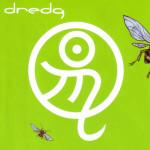 Dredg – Catch Without Arms (2005)
Dredg – Catch Without Arms (2005)

I personally feel we, the prog community, were really reaching attaching the genre name to this band that came out of the American alternative metal scene with bands like The Deftones. Nonetheless, they made interesting music that often had a “concept” running through each collection. The previous album, El Cielo, was much proggier in its concept and in some of the experimental touches like Bulgarian folk vocals. Nonetheless, this more polished album is a really good mainstream arty rock collection that should have won the band a wider audience. Don’t worry, the emo touches are not too overbearing. This a record of sweeping melodies, huge guitar hooks, and atmospheric effects. The lyrics aren’t special but are passionately sung, and Gavin Hayes has a fabulous voice. I hear some Catherine Wheel, Hum, and a wee bit of U2 here, all at their best. Okay, maybe more than a wee bit of U2. Highlights: well, heck, it all sounds pretty similar, and some songs stick out more for me, but that’s because they have the best melodies (“Not that Simple”, “Planting Seeds”). Prog metal fans may enjoy the guitars, but there are no soloing pyrotechnics. Fans of trad prog who don’t enjoy contemporary guitar rock had best stay away. Porcupine Tree fans will dig it big-time, because it could be considered to be in that arty “post-progressive” genre.
SAMPLE
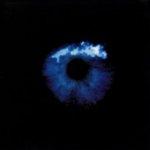 Rain – Cerulean Blue (2004)
Rain – Cerulean Blue (2004)

This fella managed to conjure up wee bit of a buzz about ten years ago … but a follow-up doesn’t seem to have manifested. Maybe he tired himself out promoting this one so heavily. It’s a solid debut by a chap who preferred to remain mysterious. Rain himself did most of the playing on this CD. It’s a concept album about a young man’s journey of self-discovery in the U.S. Why people are always going to America to find themselves is beyond me, but regardless, I find the story to be the album’s drawback, as self-involved narratives can be a little … well, twee. Especially when the story is told through a series of letters at the beginning of each track narrated in an extremely plummy English stage voice. I find it a little intellectually pretentious and don’t relate much to the character. Having said all that, I do really like most of this very ambitious album. Most tracks are started by a peaceful string arrangement before proceeding into the songs, all of which are mid-to-slow-tempo ballads with sweeping keyboards and occasional massed choral voices. Those segments are particularly beautiful. Rain has a very nice tenor voice, in keeping with the greats of prog, the Andersons, Gabriels, Fishes and Nichollses (ses?). Much has been made of the approval of Genesis figures Hackett and Collins for this album, and yes, there’s a bit of Genesis at their most mellow in here (say, “Entangled”). I enjoy the album, but the songs can carry themselves without the ponderousness of the narration. Rain should have dropped that stuff for a sequel and let the music speak for itself. I guess that never happened. But this is worth seeking out.
SAMPLE
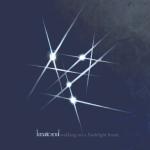 Lunatic Soul – Walking on a Flashlight Beam (2014)
Lunatic Soul – Walking on a Flashlight Beam (2014)

This is the side project of Riverside singer Mariusz Duda, Riverside being a popular Polish modern prog, or post-prog band. I like that band okay but much prefer Duda’s moodier, more personal solo work. Lunatic Soul makes dark, atmospheric, reflective music influenced by Krautrock and goth and ambient vibes — there’s no attempt whatsoever to be cheery here. Duda sounds like Steve Hogarth without the raspy AOR affectations. He sings with passion, control, and skill. Each of his records is a completely immersive experience that has a trance-like effect, with deep, dark synths and moody beats. “Cold” mixes Krautrock sequencers with a melancholy melody, while “Gutter” has the intensity of black metal without a single growl or saturated guitar. Other tracks, like “The Fear Within”, are almost ambient, while a couple, like “Sky Drawn in Crayon,” are pretty much psych-folk, this track in particular having a slight Middle Eastern cant to the melody. Finally, the title track is a long track that mixes prog with electro, waves of poignant synths and stately drumming in a powerfully drawn-out conclusion. I can honestly say that I like this album as much as anything that Steven Wilson has done. And that’s high praise coming from any modern progger, since we all like him a lot.
SAMPLE
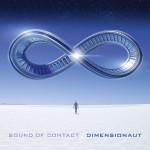 Sound of Contact – Dimensionaut (2013)
Sound of Contact – Dimensionaut (2013)

I did a full review of this, but here’s a precis: the singer and drummer is Simon Collins … Phil’s son, who has his own musical identity well beyond a few basic similarities. Dimensionaut is a mixture of two kinds of prog: classic prog of the Genesis/Rush/Yes variety, and the more melodic, AOR-influenced prog of bands like IQ, Saga, and Porcupine Tree. The first two tracks set the melodic table of a sound based on up-front guitar stylings clearly in that Rothery/Hackett/Lifeson camp. “Pale Blue Dot” is a supremely melodic number with great spacy sequenced synths, a commanding vocal from Collins that makes things about “prison planets” sound quite serious. In the alternate world in my head, this is quite the large hit. It’s followed by another heart-grabber, “I Am Dimensonaut”. There’s some lovely piano on this Marillion-esque ballad that should appeal to any fan of modern prog. Not content with these styles, Sound of Contact throws in a spacy midtempo ballad with a Beatle-esque vibe sure to please Steven Wilson fans, “Not Coming Down“. Another beautiful ballad, “Only Breathing Out”, has some really great chiming jangle-guitars in a swooning space-rock chorus with dream pop overtones, and yes, there’s even another sweet mid-tempo heart-tugger, “Closer to You”. And if all this wasn’t enough, you get the twenty minutes of “Möbius Slip”, a full epic that mixes together atmospheric sections inspired by classic seventies prog. The impressive thing about this record is the way band does, yes, remind me of Porcupine Tree, Dream Theater, IQ, etc., not as an imitator but as a contemporary with an approach all its own. There is a great deal of confidence on this album that should be a harbinger of great things to come, so I’m glad more is apparently on the way, and I hope commercial success in some form follows as well.
SAMPLE
 Gazpacho – Demon (2014)
Gazpacho – Demon (2014)

Norway’s Gazpacho likes to do concept albums. On this one they tackle an interesting topic straight out of gothic fiction: the contents of a mysterious, evil diary. It’s dark and very interesting, worthy of a novel, something that fits with the band’s northern European (there’s a violin) sound. The album starts with the first two parts of “I’ve Been Walking”, the first a really pretty song that alternates gentle piano-based verses with a pretty big, dramatic chorus of overdriven guitar chords. Some ethereal keyboards add to the languid feeling. The second part features more lovely piano and concludes with a scary dark ambient/chamber music-type section worthy of the darkest of European chamber-rock groups. The album’s closest thing to a single is “The Wizard of Altai Mountains”, a mysterious number about a fellow in red pants, featuring some almost Central Asian keyboard sounds. The last two pieces of the “I’ve Been Walking” segment follow, the first a dramatic keyboard-based ballad that is very ethereal and beautiful. There are some great neo-classical parts here and a ghostly old vocal sample is mixed in as well. The album concludes with the three-part “Death Room”. Part one features a very Central Asian-sounding plucked, zithery sound, some groaning bowed bass parts, ambient keyboard textures and peculiar lyrics like: “City lights in the Norden’s Tachometric telescope and they are not real”. European folk makes an appearance in the second part, and for our big grand finale, part three takes the album into seventies territory for a dramatic concluding piece redolent of Selling England-era Genesis, with big string mellotron, lovely violin and struck percussion parts. The fusion of languid, spacy fantasy prog sounds with European traditional music, modern classical and judiciously employed dissonant avant-garde elements makes for a really compelling musical journey, akin to a musical novel.
SAMPLE



